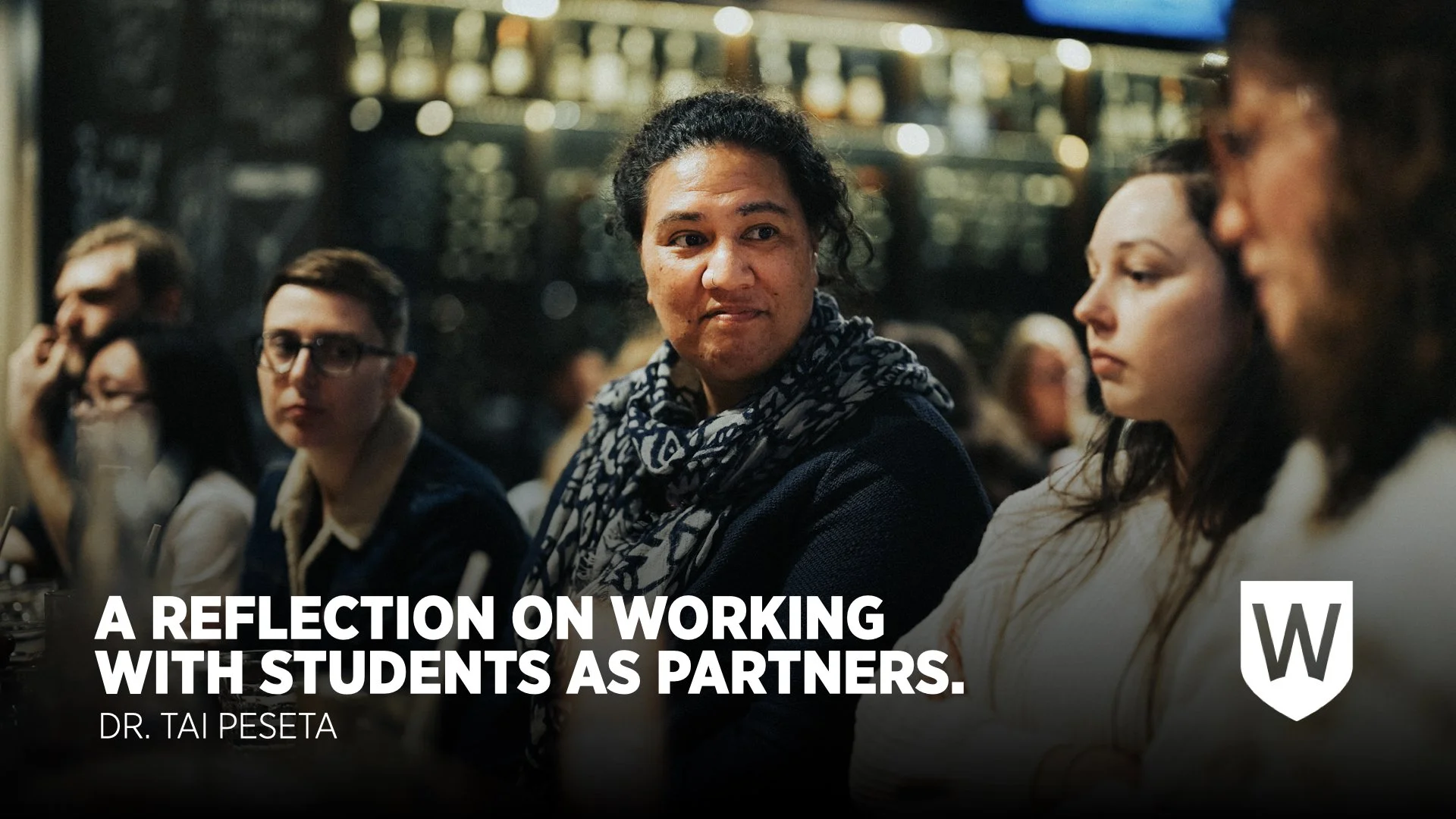
Being a Student Partner.
As students, we have something unique to offer in partnership. Whether that’s because of our student experience, the extracurricular activities we’re involved in, or simply from our life choices, being a student partner is realising that, and showing up with the intent to make a contribution alongside our colleagues, our partners, staff and our University as a whole.
A Better Way
For most of our lives as students, we only see one part of the university: lectures, tutorials, assessments and exams, but we never really go beyond interacting with it in transactional way. Being a Student Partner pulls back the curtain and allows students to see the institution as a dynamic collaborative space that they too can shape.
We know, because we have contributed to change.
Student-Staff Partnership at Western
When the 21C project started at Western, we knew wanted to experiment with Student-Staff Partnership. The goal was to begin small, gauge interest, test the waters, and then, build capacity. While universities all over the world have claimed that its education strategies are student-centred, it is no irony that as students, we often are the ‘objects’ of these initiatives: studied and consulted but very rarely at the curriculum decision-making table in any meaningful way. That doesn’t have to be the case.
“Dear Student, this is why you’re here.”
This is a letter written by us for new SCPs. It gives you a glimpse into our culture and the way we work - The Partnership Mindset. We share a few key lessons we've learned about what it means it to be a Student Partner, on a journey to co-creation at the university. We hope it inspires you!
Ideas that influence our work.
Partnership Pedagogy
The first is the broad principle of Partnership Pedagogy (Barrie & Pizzica, 2019) which drives the 21C Project at Western. This is the idea that at the curriculum-making table is a variety of partners: staff, students, external partners (industry, community, government) each keen on adding their expertise and experience to a curriculum conversation that addresses the future of work and society landscape. These partners work together to co-design, co-develop, co-deliver and co-credential curriculum while paying attention to particular features: interdisciplinarity, interdependence and integrity. Our Student-Staff partnership work sits squarely in this institutional context.
‘Teach the University’ and ‘Ethnography of the University’
The second is Williams's (2008) idea 'teach the University' which belongs in the tradition of Critical University Studies. Williams argues that there is an obligation to bring students into scholarly discussions about the university, and by doing so, we teach each other our version of the university.
He is keen for us to apprehend and encounter the university as a complex cultural institution: one that is rooted in debates about its history and philosophy; one that is accessible through its cultural and literary representations; and one that students can wrestle with sociologically or empirically. Williams says we should be invested in the future of the university because it holds the promise of our own futures. Allied to this literature is the work on the Ethnography of the University Initiative at the University of Illinois described in the work of Hunter and Abelman (2013).
Student-Staff Partnership Literature
The third is the more conventional literature on Student-Staff partnership, including the work on Student as Producer as well as the literature on students as undergraduate researchers. Our co-creation efforts have benefited from the writings and resources of Cathy Bovill, Alison Cook-Sather, Jennifer Fraser, Kelly Matthews, Peter Felten, Lucy Mercer-Mapstone, Mick Healey, Amani Bell, Mollie Dollinger, Giedre Kligyte, Angela Brew, Mike Neary and many many others. Thank you so much for your work.

What is Partnership Pedagogy?
Partnership Pedagogy is a key concept shaping curriculum transformation at our University. It refers to curriculum that is co-created between students, staff and a range of internal and external partners – community, industry, government. It embraces four aspects of curriculum co-creation: the co-design, co-development, co-delivery and co-credentialing of curriculum, as well as ideas of interdepenence, integrity and interdisciplinarity.



